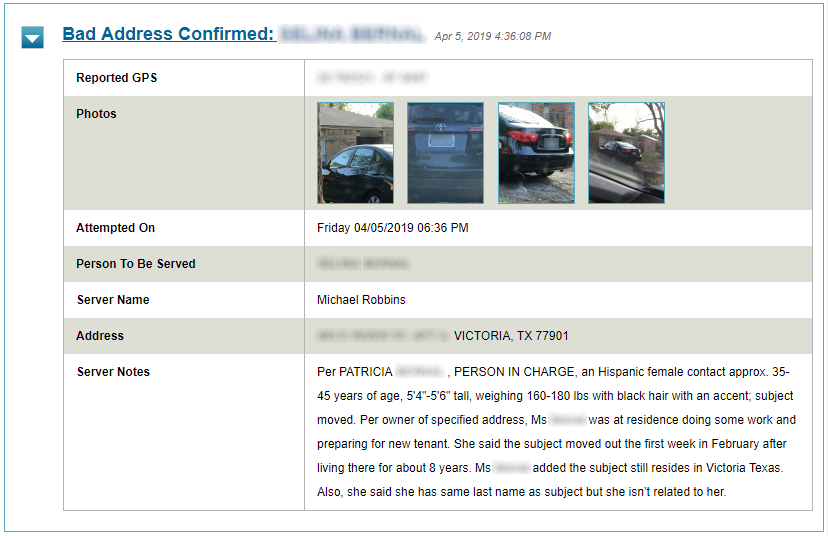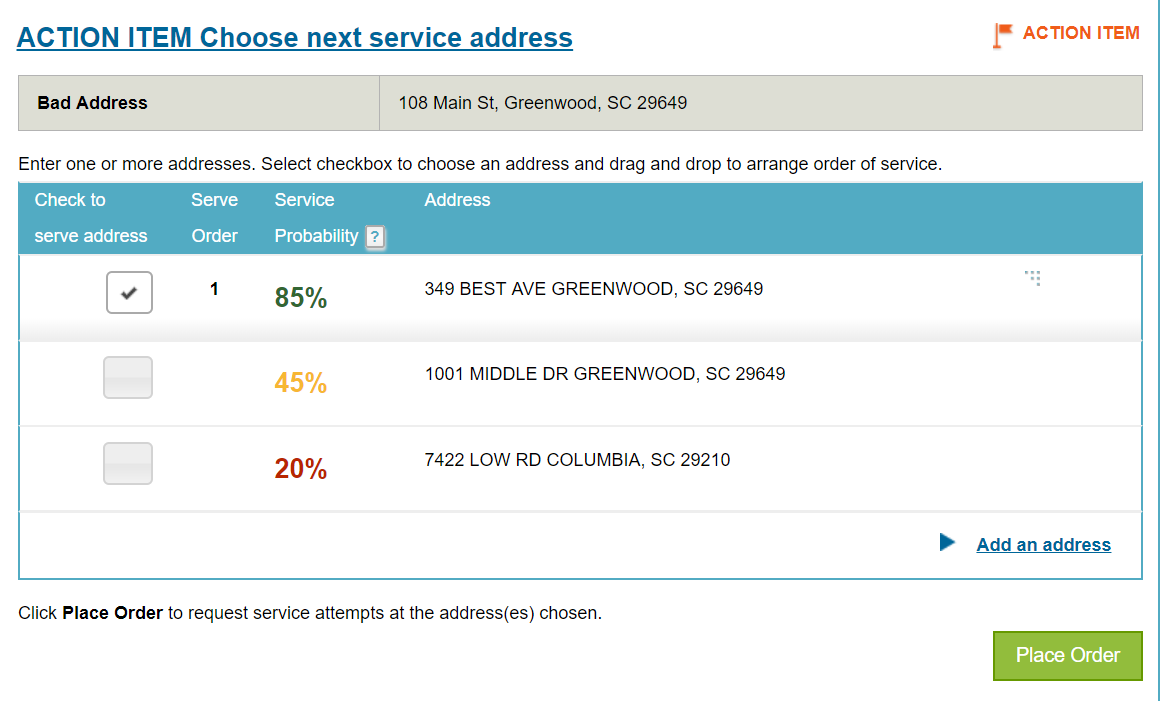It's frustrating when your process server reports a bad address.
If you file a lot of cases, each bad address erodes your bottom-line by taking more staff time and adding extra costs. If you file just a few cases, a bad address demands immediate attention and disrupts your other work.
But is a bad address always just a bad address?
It shouldn't be.
Instead, every "bad address" report should answer 3 questions that move you closer to a successful service:
Question #1: Why wasn't service successful at this address?
Was the property vacant? What signs were there? Did the individual move? Who told you? Were you unable to make contact with anyone? If not, why not? Was someone home but avoiding? How do you know? What did the neighbors say?
A process server's attempt documentation should answer these questions. Investigators will use the details to strengthen or weaken hypotheses, and a judge will review them when determining whether to approve an alternative form of service.
ABC Legal's software goes a step further by categorizing these reasons and tracking outcomes by category. Differences between process servers, law firms or geographies can lead to opportunities for improvement.

Question #2: How probable is service at each alternative address? Is it in the same venue as your filing?
A common response to discovering a bad address is to perform a 'skip trace' using a paid data provider. Most providers return a list of addresses ranked from best to worst. This result, however, fails to answer 2 critical questions: how good is the 'best' address, and is it in the same venue as your existing case?
Law firms who use ABC Legal process servers receive answers to both questions.
A service probability score, trained on millions of service outcomes, shows the actual likelihood of service at each one. And whenever an address is outside the geographic jurisdiction of the existing case, special attention is called to the difference. Enterprise customers can define business rules around when to 'automatically' attempt an alternate address (say, when the probability is over 50% and it is in the same venue).

Question #3: Was this the best possible address this person? If so, what evidence is there that it is valid?
What if the "bad" address is the one with the highest probability of service? For a firm that is effective at attempting the best address first, this is not uncommon. In fact, such cases are an opportunity to increase service rate by 2-4 percentage points.
Unfortunately, 2 common mistakes end up wasting money and time.
The first mistake is giving up too easily on a high-probability address. While attempting the "next best" address can sometimes make sense, making this choice too often ignores the simple truth that sometimes process servers are lied to or hid from.
The second mistake is to send a process server back to an address with no new information -- a classic case of doing the same thing over and over but expecting a different result. It may occasionally work (if someone else is home, for example), but it usually just leads to another bad address.
The best strategy is to avoid both mistakes.
Attempt the next-best address when the process server's notes suggest a reason to. Otherwise, provide additional information that will help the process server identify your subject even if they are being evasive. License plate numbers, names of co-residents or relatives, physical descriptions and photos can all be valuable.
ABC Legal Deep Skip incorporates all of these and more when sending a process server back to an already-attempted address.
Would you like to save time and improve your service rate? Schedule a one-on-one consultation.

Written by
Sean Lee-SiebelsService made simple—down the road and across the country. Join the 50,000+ professionals who trust ABC Legal for service of process.







